Declaración ética
Monograma muestra su compromiso con la comunidad académica garantizando la ética y calidad de los artículos publicados. Declara su compromiso por el respecto e integridad de los trabajos ya publicados, protegiendo y respetando tanto el contenido de los artículos como su integridad. Si un texto se identifica como plagio o su contenido como fraudulento, será eliminado o no publicado. Los autores se comprometen a respetar esta norma y deben garantizar que el artículo y los materiales asociados a él son originales o no infringen derechos de autor; por tanto, estarán debidamente referenciados y tratados con rigor académico, siguiendo los estándares de citación y referencia especificados por la revista. Los autores se comprometen a que su texto no ha sido presentado ni publicado con anterioridad en otro medio de difusión. También los autores tienen que justificar que, en caso de una autoría compartida, hubo un consenso pleno de todos los autores afectados y que no ha sido presentado ni publicado con anterioridad en otro medio de difusión.
Monograma sigue el procedimiento descrito de evaluación mediante el sistema de pares ciegos, tiene un sistema de selección de artículos que son revisados por evaluadores externos –anónimos y por pares– con criterios basados exclusivamente en la relevancia científica del artículo, originalidad, claridad y pertinencia del trabajo presentado. En cumplimiento de estas buenas prácticas, Monograma garantiza en todo momento la confidencialidad del proceso de evaluación, el anonimato de los evaluadores y de los autores, el contenido evaluado, el informe razonado emitido por los evaluadores y cualquier otra comunicación emitida por el Comité Científico si así procediese. De la misma forma, se mantendrá la confidencialidad ante posibles aclaraciones, reclamaciones o quejas que un autor desee remitir a los comités de la revista o a los evaluadores del artículo.
1. Políticas de la revista sobre autoría y contribución.
Los revisores ayudan a los editores en la toma de decisiones editoriales y, mediante la comunicación de los editores con los autores, pueden asistir al autor(es) en la mejora del manuscrito.
2. Quejas y apelaciones.
Los editores establecerán mecanismos de reclamación y queja frente a los contenidos publicados. Los editores se comprometen a investigar dichas acusaciones y dar seguimiento a los procesos de revisión o retractación en caso de sean necesarios.
3. Políticas de la revista sobre conflictos de intereses / intereses en conflicto.
Los editores se comprometen a rehusar participar en la evaluación o en cualquier otro proceso editorial en el caso de que puedan tener algún conflicto de interés con el trabajo presentado a causa de su relación competitiva, colaborativa o cualquier otra relación o conexión con cualquiera de los autores o instituciones vinculadas al manuscrito presentado. En estos casos, los editores en cuestión deberán solicitar a otros coeditores, editores asociados o al Comité Científico que asuma las responsabilidades propias de su función.
4. Políticas de revistas sobre intercambio de datos y reproducibilidad.
Las obras publicadas empleadas como fuente serán debidamente referenciadas para evitar la posible utilización fraudulenta de las mismas. Las referencias seguirán los estándares y los métodos de citación establecidos.
5. Política de la revista sobre supervisión ética.
Si en la comprobación de la originalidad del trabajo, los editores sospechan que este no respeta los requerimientos legales en relación con el libelo, los derechos de autor y el copyright, o el plagio, deberán informar al autor(es). Los autores deberán exponer en el trabajo, en el caso de que la haya, información sobre potenciales conflictos de intereses que puedan haber llegado a influenciar los resultados o las interpretaciones de estos en el trabajo presentado.
6. Política de la revista sobre propiedad intelectual.
Los autores se comprometen a que tanto la investigación presentada en el manuscrito como el propio texto sean originales. La autoría del trabajo ha de ser atribuida a aquellos que han desarrollado la investigación en la que se basa el trabajo presentado. Ni los editores ni ninguno de los miembros del personal editorial divulgarán el contenido o cualquier otra información relacionada con los manuscritos presentados para consideración, con excepción del propio autor(es), revisores y revisores potenciales y, en algunas circunstancias, los responsables del Comité Científico de la publicación.
7. Correcciones posteriores a la publicación.
Monograma declara su compromiso por la integridad de los trabajos publicados. Los editores corregirán con la mayor celeridad posible cualquier dato o información publicados que sean reconocidos como erróneos, engañosos o fraudulentos tras su publicación. Los editores informarán al autor(es) de estas circunstancias y quedarán a la espera de una respuesta del autor(es) antes de tomar cualquier decisión editorial. Si los editores no quedan satisfechos o esta no llega a producirse, podrán decidir retractarse de lo publicado tras la ratificación de la decisión por parte del Comité Científico.







